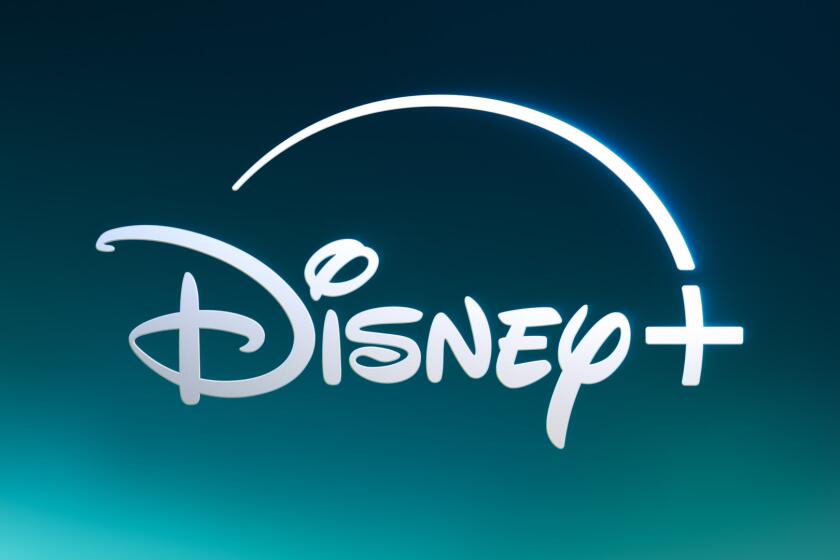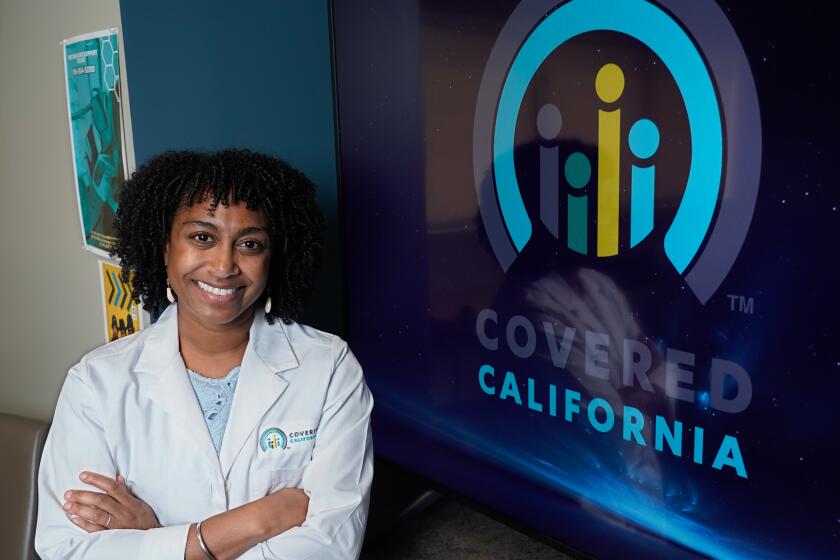Chiron Wins OK to Sell MS Drug : Pharmaceuticals: Betaseron could generate annual sales of $300 million in 1995 for firm and co-developer Berlex.
- Share via
Chiron Corp. won permission Friday from the Food and Drug Administration to market the first drug ever approved for multiple sclerosis, giving the fast-growing California biotechnology company what analysts called a potential “blockbuster.”
The drug, Betaseron, will likely be one of the hottest products in years for the beleaguered biotechnology industry. Analysts estimated that the drug could generate U.S. sales of more than $300 million in 1995 for co-developers Chiron and Berlex Laboratories, a unit of Shering A.G. of Germany that will distribute the drug. Chiron did not provide sales estimates.
Researchers have been trying for decades to develop drug treatments for multiple sclerosis, which afflicts an estimated 350,000 Americans. Betaseron is not a cure for the disabling neurological disease, but researchers found that the drug reduced the frequency and severity of acute attacks among the 100,000 to 150,000 Americans suffering from the “relapsing-remitting” form of the disease.
FDA Commissioner David A. Kessler said the new drug “will help relieve debilitating symptoms for many multiple sclerosis patients for whom no other relief was available.” The FDA’s approval, which had been expected, marked the first biotechnology product to be licensed under new accelerated approval rules.
“This has the potential to be a blockbuster product,” said Jim McCamant, editor of the Medical Technology Stock Letter in Berkeley. “It’s a big product for (the biotech industry) too.”
Chiron’s stock has been climbing in recent months on expectations of FDA approval for Betaseron. Its shares traded as high as $69 on Friday before closing at $65, off $1.75 in NASDAQ trading.
Because there is no other drug for multiple sclerosis, Chiron, of Emeryville, Calif., and Berlex Labs, of Richmond, Calif., will have a lucrative monopoly on sales of the drug.
McCamant estimates that Betaseron will produce sales of $300 million to $500 million in 1995 and will significantly boost Chiron’s earnings that year. “I don’t think Wall Street has fully recognized what sales in 1995 will mean,” he said.
Evan Sturza, editor of Sturza’s Medical Investment Letter in New York, agrees that the drug will be a huge boost for Chiron, but he notes that other biotech firms are moving quickly to get multiple-sclerosis drugs to market.
“This is the only thing in town right now, but there will be . . . even better products in five years or so,” Sturza said. Chiron and Berlex “have a window of opportunity and they can capitalize on it, but it is a limited amount of time.”
Analysts and medical experts said the drug is likely to be in short supply for months as Chiron ramps up production. Chiron officials were unavailable for comment.
Dr. Stephen Reingold, vice president of research and medical programs at the National Multiple Sclerosis Society, said he expects Betaseron to reach the market in about two months. Analysts estimates of the cost of the drug have varied from $5,000 to $10,000 per patient per year.
The FDA’s review of Chiron’s licensing request took 12 months, instead of the 29 months that is the average for most applications.
The accelerated approval process expedites action on drugs that provide meaningful benefits to people with serious diseases. It allows approval as soon as drug safety and effectiveness is reasonably established.
Chiron is a leading supplier of blood-screening tests, and of surgical instruments used in ophthalmology.
It also sells genetically engineered insulin and a vaccine for hepatitis-B. Although the company’s sales have grown rapidly, jumping to $248.1 million in 1992 from $118.4 million in 1991, it has suffered heavy losses. Chiron lost $96 million last year and $425.2 million in 1991.
More to Read
Inside the business of entertainment
The Wide Shot brings you news, analysis and insights on everything from streaming wars to production — and what it all means for the future.
You may occasionally receive promotional content from the Los Angeles Times.










